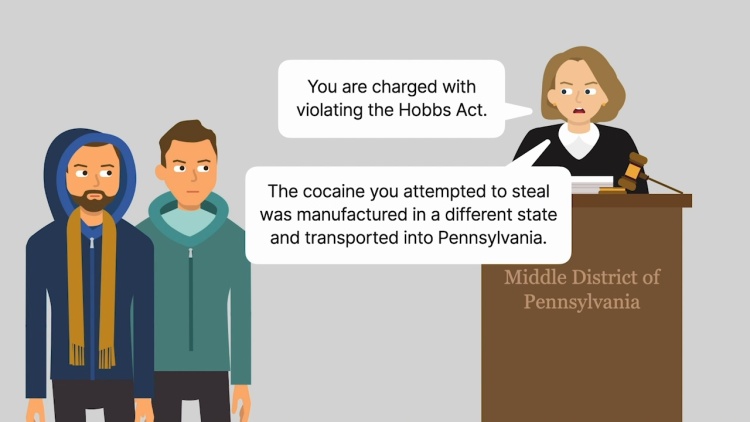United States v. Walker
United States Court of Appeals for the Third Circuit
657 F.3d 160 (2011)
- Written by Angela Patrick, JD
Facts
Brothers Barron and Barry Walker (defendants) robbed a drug dealer, Edward Wright, for a small amount of cash and crack cocaine in Harrisburg, Pennsylvania. Wright claimed that it was the first time he had ever sold drugs. Wright had purchased $60 of cocaine and, at the time of the robbery, had made a single sale for $40 to $50. The Walkers were charged under the Hobbs Act, a federal statute that made it a federal crime to commit a robbery or extortion affecting interstate commerce. At trial, local police chief John Goshert gave expert testimony that cocaine sold in Harrisburg originated outside Pennsylvania and was transported into the state. Goshert based this opinion on his 30 years of experience investigating drug trafficking in the Harrisburg area. The Walkers were convicted and appealed, arguing that (1) the evidence did not show that their robbery affected interstate commerce and (2) Goshert’s expert testimony should have been excluded as unreliable because he did not know whether the stolen cocaine was synthetic, in which case it could have been made inside Pennsylvania.
Rule of Law
Issue
Holding and Reasoning (Pollak, J.)
What to do next…
Here's why 899,000 law students have relied on our case briefs:
- Written by law professors and practitioners, not other law students. 47,000 briefs, keyed to 994 casebooks. Top-notch customer support.
- The right amount of information, includes the facts, issues, rule of law, holding and reasoning, and any concurrences and dissents.
- Access in your classes, works on your mobile and tablet. Massive library of related video lessons and high quality multiple-choice questions.
- Easy to use, uniform format for every case brief. Written in plain English, not in legalese. Our briefs summarize and simplify; they don’t just repeat the court’s language.





